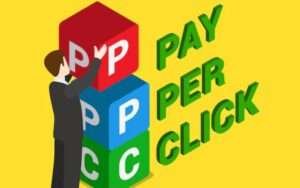Home » How to Optimize Your PPC Campaigns
How to Optimize Your PPC Campaigns

Introduction
In the fast-paced world of digital marketing, Pay-Per-Click (PPC) advertising is one of the most powerful tools to drive traffic and conversions for businesses. However, merely running a PPC campaign isn’t enough—you need to optimize it for better conversions to get the most out of your ad spend. Whether you’re a novice looking to learn Google Ads through a Google Ads course or a seasoned marketer, the key to improving your campaigns lies in mastering both strategy and execution.
In this comprehensive guide, we’ll explore actionable steps and expert-backed insights to help you optimize your PPC campaigns for better conversions. By the end of this post, you’ll be equipped with a deeper understanding of how to improve your campaign performance using data-driven tactics.
Understanding PPC Optimization
Before diving into advanced optimization strategies, it’s important to understand the basics of what PPC optimization entails. PPC optimization is the process of refining and adjusting various elements of your ad campaigns to improve the overall performance. Key metrics such as click-through rates (CTR), conversion rates, and cost-per-conversion are often used to measure this performance.
Effective PPC optimization requires a deep understanding of Google Ads, user intent, and behavioral signals. This is why taking a Google Ads course or aiming to learn Google Ads in-depth is crucial for anyone looking to maximize the return on investment (ROI) from their campaigns.
Why Is PPC Optimization Important?
PPC optimization is vital because:
- Cost Efficiency: You want to ensure that every dollar spent on ads contributes to conversions and not just clicks.
- Increased Conversions: Optimizing your campaigns ensures higher conversion rates, which directly affect revenue growth.
- Competitive Edge: A well-optimized campaign will outperform competitors, placing your brand at the top of search results.
Conduct Thorough Keyword Research
Keywords are the cornerstone of any PPC campaign, and their relevance dictates your success. To optimize for conversions, start with solid keyword research. This involves finding the right balance between high-volume and low-competition keywords.
Actionable Tips for Keyword Research:
- Use Google Keyword Planner: This free tool from Google offers invaluable insights into keyword volume and competition.
- Identify Long-Tail Keywords: These are more specific, less competitive, and often result in better conversions. For example, instead of just “learn Google Ads,” use more targeted phrases like “learn Google Ads for small businesses.”
- Negative Keywords: Exclude irrelevant keywords that are draining your budget without delivering results.
Expert Opinion: According to Google, businesses make an average of $2 in revenue for every $1 they spend on Google Ads, provided they use effective keyword targeting and continuous optimization .
Optimize Your Ad Copy for Higher CTR
Your ad copy plays a pivotal role in attracting clicks. The right copy not only draws attention but also sets the stage for conversions. A high CTR signals that your ad resonates with the audience, but to take it a step further, you need to optimize for the user’s intent.
Ad Copywriting Tips for Better Conversions:
- Use Action-Oriented Language: Encourage users to take immediate action with phrases like “Get Started Now” or “Learn More Today.”
- Incorporate Keywords in the Headline: Ensuring that your targeted keywords, like “learn Google Ads,” are included in the headline increases relevancy and improves your Quality Score.
- Highlight Unique Selling Propositions (USPs): Mention what sets your product or service apart, such as “Free Google Ads Course for Beginners” or “Boost Conversions with Expert Tips.”
Statistical Insight: According to a study by WordStream, the average CTR for Google Ads across all industries is 3.17%. However, optimized ads can see CTRs as high as 6-10%, leading to more opportunities for conversion .
Leverage A/B Testing
A/B testing is essential for understanding what works and what doesn’t in your PPC campaigns. By running experiments on various aspects of your ads, you can make informed decisions about where to allocate budget and which strategies are driving conversions.
What to A/B Test in PPC Campaigns:
- Headlines: Test different variations of your ad headlines to see which version delivers better results.
- Landing Pages: Try A/B testing your landing page designs and content to identify the highest-performing layout.
- Call-to-Action (CTA): Experiment with different CTAs, such as “Sign Up Now” versus “Get Your Free Guide.”
Expert Insight: A/B testing has been proven to improve conversion rates by up to 37% when used strategically across campaigns, according to research by ConversionXL .
Optimize Your Landing Pages
A common mistake that many marketers make is sending traffic to a landing page that is not optimized for conversions. Your landing page is where the actual conversion happens, so it’s crucial that the user experience is seamless.
Elements of a High-Converting Landing Page:
- Relevance to Ad Copy: The content on your landing page should align perfectly with the promise made in your ad. If your ad promotes a Google Ads course, the landing page should clearly reflect that.
- Clear and Concise CTA: Place your CTA prominently on the page. It should be easy for users to locate and understand the next steps.
- Fast Loading Speed: Ensure that your landing page loads quickly. According to Google, a 1-second delay in mobile page load time can reduce conversions by up to 20% .

6. Utilize Remarketing Campaigns
Remarketing is one of the most effective strategies to optimize PPC for better conversions. It allows you to target users who have already visited your website but didn’t convert.
Best Practices for Remarketing:
- Segment Your Audience: Create different remarketing lists based on user behavior (e.g., users who abandoned the cart versus those who viewed a product page).
- Tailored Ad Copy: Craft specific messages for each segment. For example, users who viewed your Google Ads course might respond better to ads offering a limited-time discount.
Expert Tip: Remarketing ads typically have a 10x higher CTR than standard display ads, as they are shown to users who are already familiar with your brand .
Adjust Bidding Strategies for Maximum ROI
Bidding is another critical component of PPC optimization. Using the right bidding strategy can significantly impact your campaign’s profitability. Google Ads offers a range of automated and manual bidding strategies tailored to your goals.
Bidding Strategies to Consider:
- Maximize Conversions: This automated bidding strategy adjusts your bids in real-time to maximize the number of conversions.
- Target CPA (Cost Per Acquisition): Set a target cost per conversion, and Google will adjust your bids to achieve that.
- Manual CPC Bidding: Allows more granular control over bids, which can be beneficial if you have the time to manage your campaigns closely.
Statistical Insight: According to data from Google, automated bidding can increase conversion rates by up to 20% when implemented effectively .
Monitor and Analyze Performance Metrics
Continuous monitoring and analysis are key to optimizing your PPC campaigns. Rely on Google Ads’ built-in reporting features to track important metrics like CTR, conversion rate, and Quality Score.
Key PPC Metrics to Watch:
- Conversion Rate: Measures how well your ads are converting clicks into leads or sales.
- Cost Per Conversion: Helps you understand how much you’re spending to achieve each conversion.
- Impression Share: Indicates the percentage of times your ads are shown versus how often they could be shown.
Is Google Ads Certification Easy?
Whether Google Ads certification is “easy” depends on your background and familiarity with digital marketing. For individuals with prior knowledge of online advertising or who have completed a Google Ads course, the certification might feel more straightforward. However, if you’re new to PPC or digital marketing in general, you may find some of the concepts more challenging.
The certification exams cover a range of topics, including campaign setup, optimization strategies, bidding techniques, and measurement tools. To pass, you need a solid understanding of these topics. That said, Google provides free study materials and access to Google Skillshop, making it easier to prepare for the exams.
Do Google Ads Certifications Cost Money?
No, Google Ads certifications are completely free. You can access the learning materials and take the certification exams at no cost through Google Skillshop. This makes the certification process accessible to anyone who is willing to invest time in learning. Once you pass the exams, you will receive a certificate valid for one year, after which you’ll need to retake the exam to maintain your certification.
How Many Days Will It Take to Learn Google Ads?
The time it takes to learn Google Ads depends on your learning pace and prior experience with digital marketing. For someone with a basic understanding of PPC advertising, it may take 1-2 weeks of focused study to gain proficiency and pass the certification exams. If you’re a complete beginner, you might need 2-4 weeks to fully grasp the concepts.
If you’re enrolling in a structured Google Ads course, many programs are designed to be completed within 7 to 14 days if you dedicate a few hours each day to studying. The learning process can be accelerated if you practice setting up real campaigns while learning, as this hands-on approach helps solidify the concepts faster.
Ultimately, the timeline for learning Google Ads depends on how much time you can dedicate each day and whether you’re aiming to master advanced concepts like campaign optimization and remarketing.
Stay Up-to-Date with Google Ads Features
Google Ads frequently rolls out new features that can give your PPC campaigns an edge. Stay updated by regularly checking announcements and updates from Google.
Key Updates to Watch:
- Smart Bidding Enhancements: Google continues to improve automated bidding features that use machine learning to optimize for conversions.
- New Ad Formats: Keep an eye out for newer ad formats that could help you stand out, such as Gallery Ads or Responsive Search Ads.
Tip: Enroll in a Google Ads course to stay ahead of the curve and gain insights into new trends and features.
Why Opt for SSIDM (7 Star Institute of Digital Marketing) for Google Ads Training?
Choosing the right training program is crucial for mastering Google Ads and excelling in paid search marketing. SSIDM (7 Star Institute of Digital Marketing) offers a comprehensive, up-to-date Google Ads course that equips you with the skills needed to run successful campaigns. Here’s why SSIDM is an ideal choice for your Google Ads learning journey:
Optimizing your PPC campaigns for better conversions is an ongoing process that involves keyword research, ad copy improvement, A/B testing, landing page optimization, and regular performance analysis. By implementing the strategies outlined in this post, you can significantly improve your ROI and drive more conversions.
At 7 Star Institute of Digital Marketing (SSIDM), we offer comprehensive training on PPC optimization techniques that help you master all aspects of paid advertising. Our courses cover in-depth keyword research strategies, effective ad copywriting, conversion-focused landing page creation, and performance tracking. Whether you’re a beginner or an experienced marketer, SSIDM provides hands-on learning and industry insights to help you achieve maximum ROI from your PPC campaigns.
Conclusion
Optimizing your PPC campaigns for better conversions is an ongoing process that involves keyword research, ad copy improvement, A/B testing, landing page optimization, and regular performance analysis. By implementing the strategies outlined in this post, you can significantly improve your ROI and drive more conversions.
If you’re serious about mastering PPC and Google Ads, consider enrolling in a Google Ads course to deepen your knowledge and stay competitive in this ever-evolving digital landscape.
If you’re looking to enhance your digital marketing skills, including mastering the art of CTAs, consider enrolling in a digital marketing course online with the 7 Star Institute of Digital Marketing. Know more in about us section of on website. Our courses are designed to provide you with practical, hands-on experience, ensuring you’re ready to implement the strategies that will lead to success.







